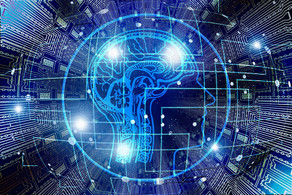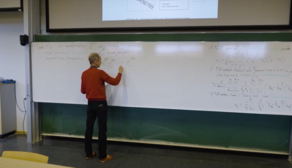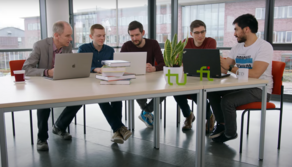Computer Vision
Important Information
Notes on lecture dates:
- 29.4.2025: No lecture due to General Assembly of the Student Council
- 13.5.2025: First Intermediate Test - Results
- 03.06.2025: Second Intermediate Test - Results
- 24.06.2025: Third Intermediate Test- Results
- 08.07.2025: Fourth Intermediate Test
Lecture Format
Classical, physical lecture. All materials available online.
Registration
All students interested in participating in the Computer Vision lecture are kindly requested to register via the LSF!
Tutorials
1 week block course after the end of the lecture period. There are two identical slots:
A: 4.8. - 8.8.
B: 11.8. - 15.8.
Registration and more information:
Starting 1st of July, you can register for one of the slots via the Moodle room.
Exams:
- Final Exam: Oral exam, approx. 30-45 min
- Intermediate Tests ("Studienleistung", required to attend the final exam)
Notes on Lecture Dates
21.05.2024: There will be no lecture today!
Test 01: 14.05.2024 - Results
Test 02: 04.06.2024 - Results
Test 03: 18.06.2024 - Results
Test 04: 02.07.2024 - Results
Lecture Format
Classical, physical lecture. All materials available online.
Registration
All students interested in participating in the Computer Vision lecture are kindly requested to register via the LSF system.
Tutorials
1 week block course after the end of the lecture period:
[dates will be anounced later]
Registration and more information: tbd
Exams:
- Final Exam: Oral exam, approx. 30-45 min
- Intermediate Tests ("Studienleistung", required to attend the final exam)
Notes on Lecture Dates
- Registration for the Tutorials is now open (until July 7th): Moodle
- 09.05.2023: First Short Test - Results
- 30.05.2023: Second Short Test - Results
- 13.06.2023: Third Short Test - Results
- 27.06.2023: Fourth Short Test - Results
Lecture Format
Classical, physical lecture. All materials available online.
Registration
All students interested in participating in the Computer Vision lecture are kindly requested to register via the LSF system.
Tutorials
1 week block course after the end of the lecture period:
Group A: 17.7. - 21.7.
Group B: 24.7. -28.7.
Registration and more information: Moodle
Exams:
- Final Exam: Oral exam, approx. 30-45 min
- Intermediate Tests ("Studienleistung", required to attend the final exam)
Lecture Format
Classical, physical lecture. All materials available online.
Registration
All students interested in participating in the Computer Vision lecture are kindly requested to register via the LSF system.
Tutorials
to be announced (1 week block course after the end of the lecture period)
Slides (cv-01, cv-02, cv-03, cv-04, cv-05, cv-06, cv-07, cv-08, cv-09, cv-10, cv-11, cv-12)
Introduction
For the majority of living beeings vision is the most important perception mechanism for orienting themselves in the environment. Therefore, there exists a multitude of attempts to recreate this capability in artificial systems. In contrast to image processing techniques found in industrial applications the aim of such advanced systems for machine vision is to obtain a task-oriented interpretation of a complex scene with as few restrictions as possible concerning the context and the recording conditions.
In this lecture advanced techniques of machine vision are covered which to some extent are inspired by cognitive processes known from human visual perception. First, important aspects of imaging processes are introduced with an emphasis on the perception of colors. Afterwards, methods for the extraction of image primitives (e.g. regions and edges) and for the calculation of feature representations (e.g. texture, depth, or motion) are presented. Finally, the lecture focusses on visual perception processes at the boundary between image processing and scene interpretation. Several appearance based object recognition techniques will be covered, e.g., Bag-of-Features approaches, Eigenimages, and deep Convolutional Neural Networks (CNNs) which define the state-of-the art for many current computer vision problems.
The accompanying tutorials will give students the opportunity to deepen their knowledge of the theoretical concepts presented in the lecture by working on relevant practical problems.
Specialization Module (Vertiefungsmodul INF-MSc-502) for Master (Applied) Computer Science
Topical focus areas (Schwerpunktgebiete): 2 (..., Embedded Systems, ...), 7 (Intelligent Systems)
Others
- Gonzalez, Rafael C.; Woods, Richard E.: Digital Image Processing, Prenctice Hall, 2nd Ed., 2002.
- Forsyth, David A.; Ponce, Jean: Computer Vision - A Modern Approach, Prentice Hall, 2003.
- Szeliski, Richard: Computer Vision, Springer, 2010.
- Ballard, Dana H.; Brown, Christopher M.: Computer Vision, Prentice Hall, 1982.
- Comaniciu, Dorin; Meer, Peter: Mean Shift: A robust approach toward feature space analysis, IEEE Trans. on Pattern Analysis and Machine Intelligence, 24(5):603-619, 2002.
- Dalal, Navneet; Bill Triggs, Bill: Histograms of oriented gradients for human detection, Proc. IEEE Comp. Soc. Conf. on Computer Vision and Pattern Recognition, vol. 2, pp. 886-893, 2005.
- Felzenszwalb, Pedro F.; Huttenlocher, Daniel P.: Efficient graph-based image segmentation, Int. J. of Computer Vision, Vol. 59, No. 2, pp. 167-181, 2004.
- Horn, Berthold K. P.; Schunck, Brian G.: Determining Optical Flow, Artificial Intelligence, Vol. 17, pp. 185-203, 1981.
- LeCun, Y.; Bengio, Y.; Hinton, G.: Deep learning, Nature, 521:436-444.
- Lewis, J. P.: Fast Normalized Cross-Correlation, web document.
- Lowe, D.: Distinctive Image Features from Scale-Invariant Keypoints, Int. Journal of Computer Vision, Vol. 60, No. 2, pp. 91-110, 2004.
- O'Hara, Stephen; Draper, Bruce A.: Introduction to the Bag of Features Paradigm for Image Classification and Retrieval, Computing Research Repository, arXiv:1101.3354v1, 2011.
- Turk, Matthew; Pentland, Alex: Eigenfaces for Recognition, Journal of Cognitive Neuroscience, Vol. 3, No. 1, pp. 71-86, 1991.
- Lecture Notes (Draft)
- Slides (cv-01, cv-02, cv-03, cv-04, cv-05, cv-06, cv-07, cv-08, cv-09, cv-10, cv-11, cv-12, cv-13)
- Gernot A. Fink, Sebastian Sudholt: Word Spotting: From Bag-of-Features to Deep Learning, Tutorial (invited) presented at IAPR Summer School on Document Analysis, Jaipur, India, 2017.








